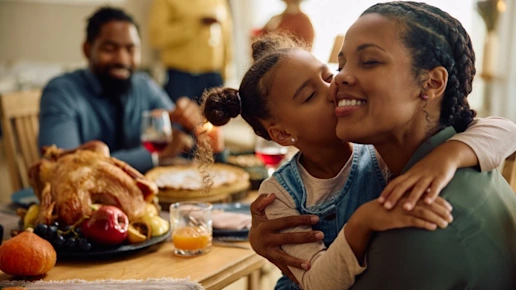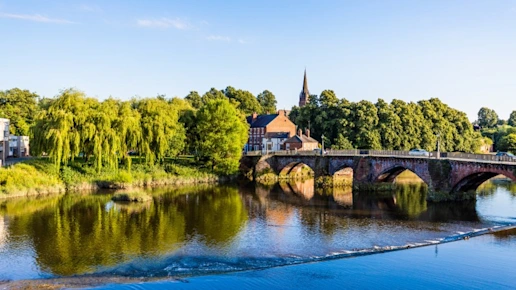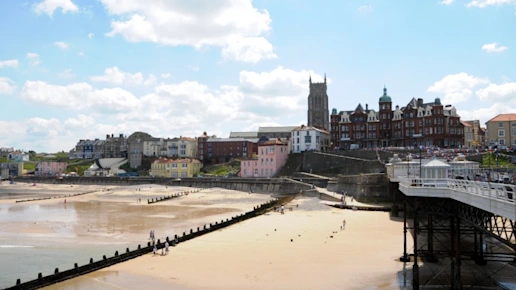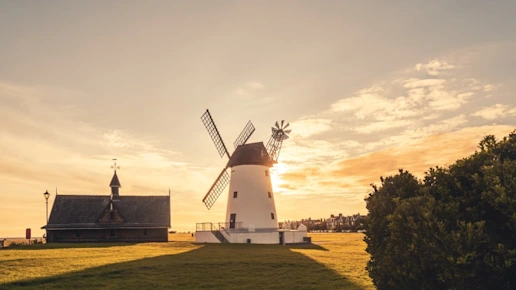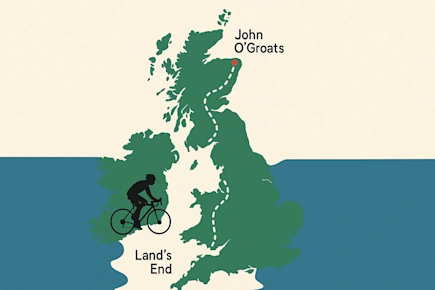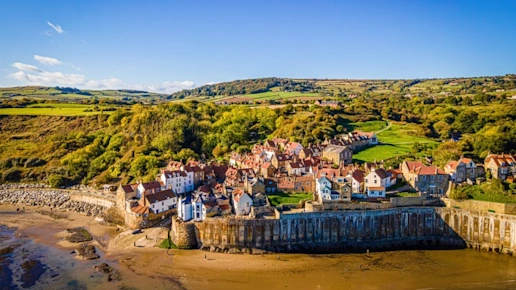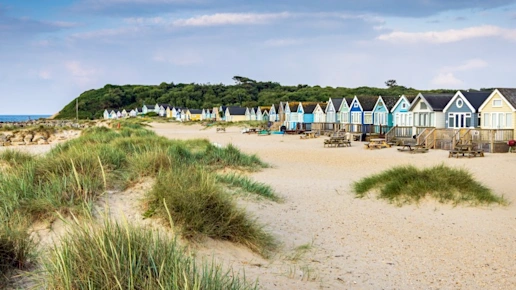Easter Traditions in the UK
A Guide to Festivities and Heritage
Posted on 08-01-25, updated on 26-01-26By: Claire S. | 9 minute read

Easter is one of those holidays that seems to sneak up on us, bursting forth with excitement and a touch of sweetness. It’s a time when the UK shakes off the winter blues and embraces the colourful arrival of spring. With roots steeped in Christian beliefs, historical practices, and modern celebrations, Easter has evolved into a vibrant mix of traditions that bring families and communities together. Whether you’re a seasoned Easter veteran or new to the festivities, this guide will take you through the ins and outs of British Easter traditions throughout the UK. It's also the perfect time to take a break in an Easter cottage. Read on for more inspiration.

The Origins of Easter Traditions in the UK
At its core, Easter is primarily a Christian holiday that celebrates the resurrection of Jesus Christ. The season itself is marked by Lent, a period of fasting and reflection leading up to Easter Sunday. However, as the years have gone by, various customs and practices have developed, blending sacred and secular elements. Here are some key aspects of Easter’s origins:
Pagan Influences
The influence of early Christian missionaries is recognised as a significant factor in the spread and establishment of Christianity as a major religion. These missionaries, particularly in the early centuries of Christianity, played a crucial role in evangelising and converting non-Christian populations to the faith.
Early Christian missionaries travelled to various regions, including Europe, the Middle East, and Africa, spreading the teachings of Jesus Christ. They emphasised the message of salvation, the power of forgiveness, and the love of God. Through their preaching, teaching, and example, early missionaries were able to attract followers and establish Christian communities in different parts of the world.
As Christianity expanded into new territories, it often encountered existing pagan traditions and celebrations. To facilitate the conversion of pagans, early Christian missionaries sometimes incorporated elements of local customs and traditions into Christian practices. This practice, known as syncretism, aimed to make Christian teachings more relatable and familiar to the local population.
Adoption of Symbols
For instance, the adoption of symbols like eggs and rabbits from pagan celebrations can be traced back to the influence of early Christian missionaries. Eggs and rabbits symbolized fertility and renewal in many pagan spring festivals. When Christianity spread to these regions, missionaries incorporated these symbols into the celebration of Easter, which commemorates the resurrection of Jesus Christ. The egg came to represent new life and resurrection, while the rabbit symbolised fertility and rebirth.
Key Dates
In the UK, the establishment of Good Friday and Easter Sunday as key dates can also be attributed to the influence of early Christian missionaries. Good Friday, which commemorates the crucifixion of Jesus Christ, and Easter Sunday, which celebrates his resurrection, have become two of the most important dates in the Christian calendar. These dates were adopted and integrated into English religious practices by early Christian missionaries, shaping the language and traditions associated with Easter in the UK.

Religious Observances and Church Traditions
For many people, Easter holds a significant spiritual meaning and is a time of deep reflection and devotion. Throughout the week leading up to Easter, known as Holy Week, church services and observances are held to commemorate the events surrounding the crucifixion and resurrection of Jesus Christ.
The week begins with Palm Sunday, which marks Jesus' triumphal entry into Jerusalem. Churches often distribute palm fronds to the congregation, symbolising the palm branches that were waved by the crowds as Jesus rode into the city. Some churches even craft crosses out of these palm fronds, highlighting the significance of Jesus' sacrifice.
Good Friday, a solemn day of observance, is a time when Christians reflect on the crucifixion of Jesus. This day is marked by sombre services that invite believers to engage in prayer, fasting, and contemplation on the immense sacrifice made by Jesus for the salvation of humanity. It serves as a reminder of the depth of Jesus' love and the price He paid for our sins.
On the night before Easter Sunday, many churches hold an Easter Vigil service. This service is characterised by candle lighting and the singing of hymns, creating an atmosphere of anticipation and joy. Worshippers gather in the darkness, symbolising the period of waiting and uncertainty between Jesus' death and resurrection. As the service progresses, the darkness gradually gives way to light, representing the hope and joy that comes with the imminent celebration of Jesus' resurrection. This service serves as a powerful reminder of the victory of life over death and the promise of new beginnings.
Finally, Easter Sunday, also known as Resurrection Sunday, is the culmination of Holy Week. It is a day of immense joy and celebration for Christians all over the world. Church services are filled with festive hymns, uplifting sermons, and an atmosphere of rejoicing. Believers come together to commemorate the resurrection of Jesus Christ, which is at the very heart of the Christian faith. Special meals and communal gatherings often follow the service, providing an opportunity for believers to come together, share in the joy of the resurrection, and strengthen their bonds as a community of faith.

Traditional British Easter Foods
No Easter celebration is complete without a mouth-watering feast! Traditional foods not only fill our bellies but also play a significant role in bringing families together during this time of year. Let's delve into some of the beloved Easter treats and their cultural significance:
Hot Cross Buns
These spiced buns, marked with the iconic cross, have become synonymous with Easter. While traditionally consumed on Good Friday as a way to remember the crucifixion of Jesus, these buns have gained popularity throughout the entire Easter season. The warm aroma of cinnamon, nutmeg, and currants wafts through homes, creating an irresistible temptation for the whole family.
Roast Lamb
As Easter Sunday is a day of celebration and renewal, it is fitting that roast lamb takes centre stage at the dinner table. This succulent choice of meat holds a deep symbolic meaning in Christian tradition, representing the Lamb of God. Its tender flesh, roasted to perfection, is often complemented by an array of seasonal vegetables and a dollop of refreshing mint sauce. The carving of the lamb serves as a reminder of Jesus' sacrifice and the hope of resurrection.
Chocolate Eggs
Ah, the delightful and oh-so-tempting chocolate eggs! These delectable treats have undoubtedly become the epitome of Easter indulgence. Crafted into various shapes and sizes, chocolate eggs have surpassed their humble origins of simple egg-dyeing. The tradition of giving and receiving eggs has now transformed into a massive commercial and culinary celebration. From beautifully decorated chocolate eggs with intricate designs to bigger versions with surprise fillings, these eggs bring joy not only to children but also to the young at heart.
Simnel Cake
Just when you thought the feast couldn't get any sweeter, enter the Simnel Cake. This rich fruitcake, adorned with eleven marzipan balls, represents the remaining apostles (minus Judas, of course). Its dense and moist texture, studded with dried fruits and laced with spices, is a true delight for the taste buds. Simnel Cake has become a classic Springtime dessert that graces many tables, symbolising the renewal and abundance of the season.

Easter Egg Hunts and Chocolate Traditions
One of the most delightful aspects of Easter for children—and adults alike—is the Easter egg hunt. It's an eagerly anticipated tradition that brings joy and excitement to households all over. It's a game of hide-and-seek but with a sweet twist. Why not join a public egg hunt at one of the many National Trust sites?
But the Easter fun doesn't stop there! In many towns and villages, there are competitions centred around Easter eggs. One of the most popular is the Easter egg rolling competition. Enjoy the excitement as families gather on hillsides or slopes, each armed with a hard-boiled egg creatively decorated with vibrant colours and unique designs. The objective is simple: to roll their egg down the hill, hoping it will travel the farthest without breaking. In Preston, the most famous location for egg rolling is Avenham Park, where hundreds of people gather to take part in the event. The park's steep slopes provide an ideal setting for the rolling of eggs. Participants decorate their eggs beforehand, often using colourful paints or stickers.
Aside from Preston, egg rolling is also practised in other parts of Northern England, such as Lancashire and Yorkshire. The tradition varies slightly between regions, but the overall concept remains the same.
And, of course, what would Easter be without mentioning the iconic figure known as the Easter Bunny? The myth of the Easter Bunny has captured the imaginations of children, adding a sprinkle of magic to the day. Kids eagerly anticipate a visit from this adorable, fluffy creature, who is said to hop from one house to another, delivering baskets full of colourful eggs. It's a tradition that symbolises the arrival of Spring, new beginnings, and the celebration of Easter.

Unique Regional Easter Traditions in the UK
In Lancashire and Yorkshire, another Easter tradition called Pace Egging is prevalent. Pace Egging involves a group of performers, known as Pace Eggers, who dress up in colourful costumes and perform plays or skits related to the resurrection of Jesus Christ. These plays often include characters like St. George, the Dragon, and the Fool. The Pace Eggers go from house to house, performing their plays and collecting money or treats in return. This tradition is a way to celebrate Easter and entertain the community.
In Wales, during "Holy Week," various traditions and activities take place. Storytelling is a significant part of these Welsh traditions, with tales often centred around religious themes related to the Easter season. The stories are often passed down through generations, and during Holy Week they are commonly shared in gathering places such as homes or community centres.
Choir performances are another important part of Welsh Holy Week traditions. Many choirs in Wales, known for their beautiful harmonies and strong musical culture, hold special performances during this time. These performances often include hymns and songs focused on the religious significance of Easter, creating a spiritually enriching experience for attendees.

Modern Easter Celebrations in the UK
Modern Easter celebrations have evolved to include exciting new customs alongside traditional ones. In the UK, Easter festivals in various towns showcase local craftsmen's talents, featuring unique handmade items like intricately crafted Easter eggs and baskets. These festivals celebrate community creativity while also offering delicious Easter foods, such as hot cross buns and chocolates. Enjoy live music, traditional dances, and interactive activities, ensuring fun for both children and adults.
Easter-themed crafts and workshops for children in the UK are a popular way to celebrate the holiday and engage young ones in creative and interactive activities. These events can be found in various settings, such as local community centres, museums, art studios, and even online platforms.
Craft workshops offer children a chance to learn skills while creating Easter-themed decorations and gifts. Activities typically include painting and decorating eggs, making bonnets, bunny masks, and Easter cards. All materials are provided, and experienced instructors guide the process.
These workshops also feature interactive activities like egg hunts with treats, storytelling about the Easter Bunny, and baking sessions for Easter cookies or cakes. In the UK, these craft workshops are particularly popular in the weeks before Easter Sunday. Pre-registration or tickets are often required, so checking local listings for dates, locations, and costs is recommended.

Looking for More Easter inspiration?
Easter in the UK is a holiday that beautifully intertwines religious observance, traditions, and delicious foods. From church services to egg hunts, the range of celebrations and customs reflects the rich tapestry of the UK’s cultural heritage. As we gather with family and friends to partake in these cherished ways of celebrating, it reminds us that, at the heart of Easter, is the joy of love, renewal, and togetherness. Whether you’re biting into a chocolate egg or rolling an egg down a hill, enjoy every moment of the season—it’s a time that brings us all a little closer together!
If you're looking for a family-fun-filled break this Easter why not check out our fabulous Easter deals that won't break the bank!
About Us
cottages.com is your go-to destination for an extensive selection of memorable cottage holidays. With a wealth of experience spanning over 45 years, we boast a portfolio of over 20,000 holiday homes spread across the UK, catering to every budget. We're committed to maintaining a high standard of service to our customers by abiding by ABTA's Code of Conduct Our excellent Trustpilot rating reflects the high level of customer satisfaction we strive for. We believe in keeping things simple, so you can focus on making lasting memories with your loved ones from the moment you book with us.
